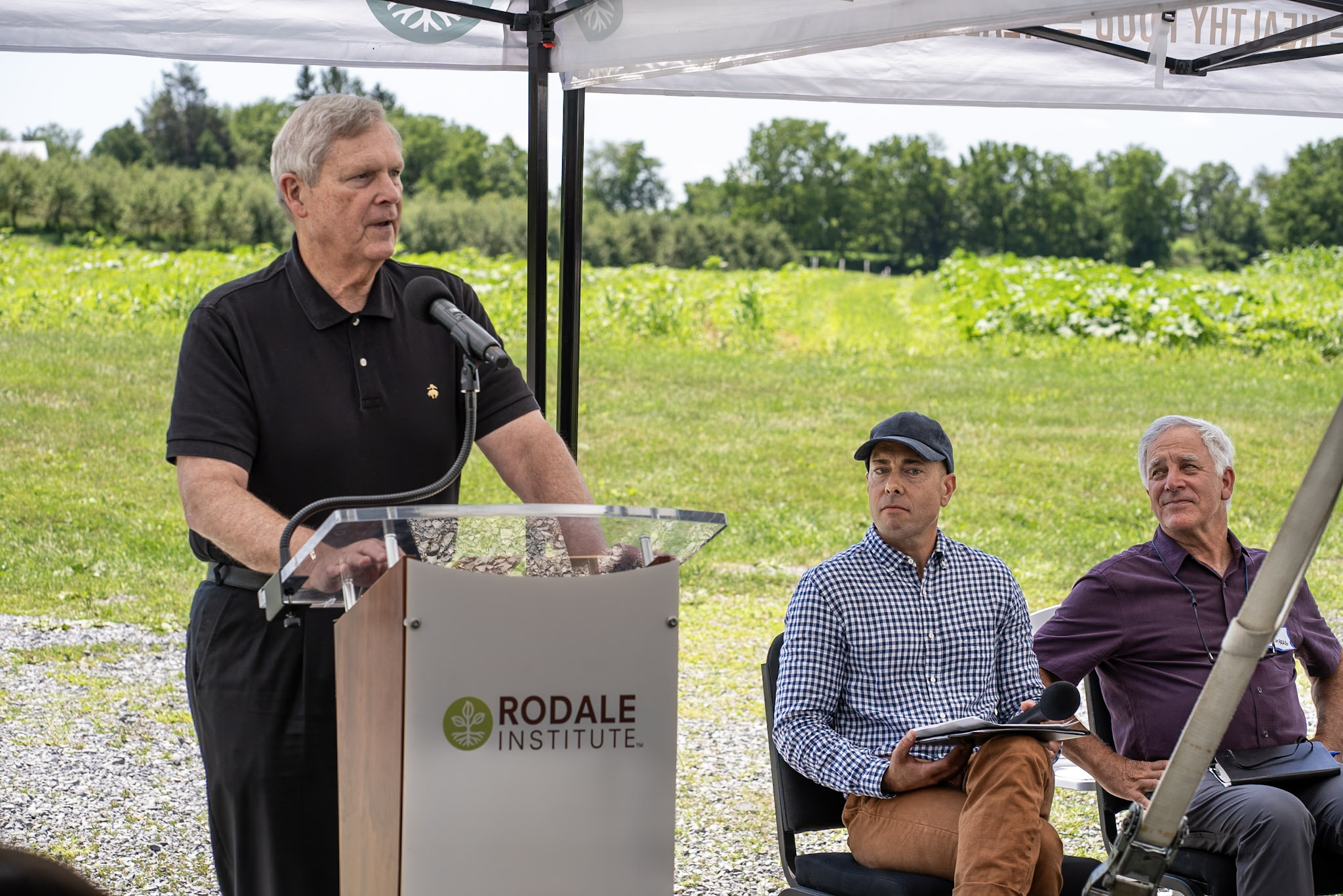As the demand for certified organic products in our food system continues to rise, many farmers and producers face the challenge of acquiring the necessary technical assistance and knowledge to transition to regenerative organic practices. With climate change, soil degradation, and other environmental pressures impacting agricultural production, conventional methods remain the mainstream approach. Rodale Institute, the global leader of regenerative organic agriculture and research, is dedicated to leading the way in helping farmers transition to regenerative organic practices, aiming to create healthier soil, which in turn leads to a healthier food system and healthier humans.
For 77 years, Rodale Institute has been at the forefront of the organic agricultural movement through rigorous research, farming training, and education. The Institute’s work is driven by a vision to transform agriculture through regenerative organic practices that restore soil health, enhance biodiversity, and improve food quality. Additionally, Rodale Institute’s research proves that organic farming is viable and essential to humanity’s survival. This groundbreaking science and direct farmer support programs serve as a catalyst for change in farming and food production worldwide. As part of its mission, the Institute hosts an annual Organic Farmer Field Day. This year’s event featured a distinguished visit from U.S. Secretary of Agriculture Tom Vilsack.
 U.S. Secretary of Agriculture Tom Vilsack speaks to visitors at Rodale Institute Field Day.
U.S. Secretary of Agriculture Tom Vilsack speaks to visitors at Rodale Institute Field Day.On July 19, Secretary Vilsack joined Rodale Institute researchers and scientists at their headquarters’ Organic Farmer Field Day in Kutztown, Pa. Held annually, this event is a cornerstone of efforts to promote regenerative organic agriculture. It drew hundreds of farmers, researchers, and scientists from around the world to the 386-acre farm for a day of learning, demonstrations, interactive exhibits, and dialogue about the future of farming.
The event featured a dynamic panel discussion where Secretary Vilsack, Pennsylvania Secretary of Agriculture Russell Redding, and other industry leaders shared their insights on expanding access to Climate-Smart agriculture, growing the market for organic products, and supporting producers transitioning to organic farming. Secretary Vilsack also addressed efforts to create additional income opportunities for producers and entrepreneurs by building better markets, investing in rural infrastructure, and strengthening local and regional supply chains.
Secretary Vilsack highlighted key initiatives from President Biden’s historic Inflation Reduction Act, which allocated nearly $20 billion over five years for the USDA’s Natural Resources Conservation Service (NRCS). This funding aims to meet the high demand for conservation programs, create more revenue streams for small and mid-sized farms, and reduce operational costs.
“It starts with Climate-Smart agriculture,” Vilsack emphasized. “This approach benefits soil and water biodiversity and crop diversity. We’re investing in practices that work and will continue to monitor and support those efforts.”
The panel discussion was both enlightening and motivating. Gary Hirshberg, organic expert and former CEO of Stonyfield Farms, delivered a compelling message to the farmers in attendance: “You are on trend and you are on market, and it’s up to the rest of us to be supporting you. You are not just producing delicious, incredible food. You are providing preventive healthcare for people and the planet.”
Christa Barfield, Organic Farming Ambassador and James Beard award winner, also made a powerful point: “Without farming, we lose on so many different levels. It is crucial to remind people to thank a farmer and to recognize their contributions to every aspect of our lives.”
Visitors were offered the chance to engage with various exhibitors, including the USDA, Rodale Institute’s Farmer Training (RIFT) program, and the Southern Piedmont Climate Smart Project. The Southern Piedmont initiative, a USDA-funded program led by Secretary Vilsack, focuses on increasing productivity, enhancing resilience, and reducing emissions in agriculture.
A central highlight of the event was the showcase of the ongoing Farming Systems Trial (FST), one of the longest-running comparative research studies on organic and conventional farming methods. Since 1981, the FST has been instrumental in demonstrating the benefits of organic practices in terms of soil health, crop yields, and environmental sustainability. The trial compares different farming systems—organic and conventional—providing valuable data on the long-term impacts of each approach. The scientific data has established that organic management matches or outperforms conventional agriculture in ways that benefit farmers and lays a strong foundation for designing and refining agricultural systems that can improve the health of people and the planet.
Visitors also had the opportunity to tour the research plots and learn from Rodale Institute experts about the latest findings from the FST. The research underscored the importance of regenerative organic practices in building soil fertility, conserving water, and reducing greenhouse gas emissions. The insights gained from the Farming Systems Trial are crucial in guiding farmers toward more sustainable practices and informing policy decisions at local and national levels.
Field Day is an event that exemplifies Rodale Institute’s commitment to advancing regenerative organic agriculture and fostering collaboration among stakeholders. It provides a vital platform for sharing knowledge, showcasing innovations, and engaging with the broader agricultural community. The enthusiasm and support from participants, coupled with the endorsement from key figures like Secretary Vilsack, reinforce the importance of the work and the potential for positive change.
Rodale Institute has five regional organic centers across the United States where additional field days are held. Each location offers a unique perspective showcasing regional practices and innovations providing local farmers and communities with access to cutting-edge research, training, and resources to support their transition to organic agriculture. Hosting field days on satellite campuses ensures that the message and tools reach a broad audience to foster a nationwide movement.










